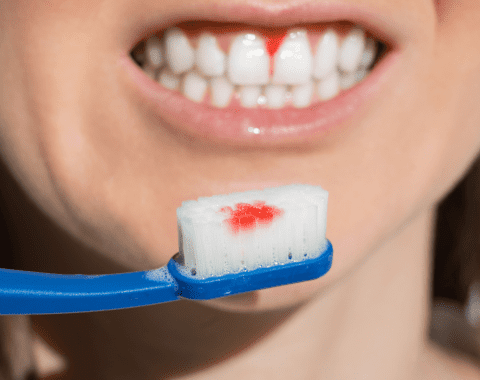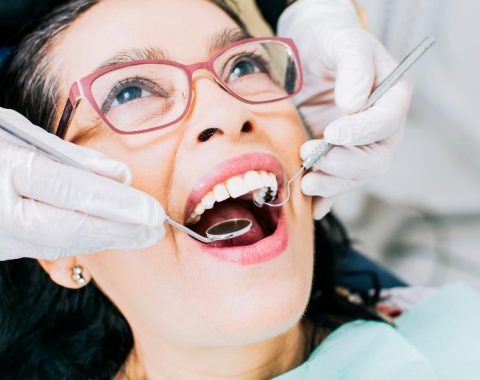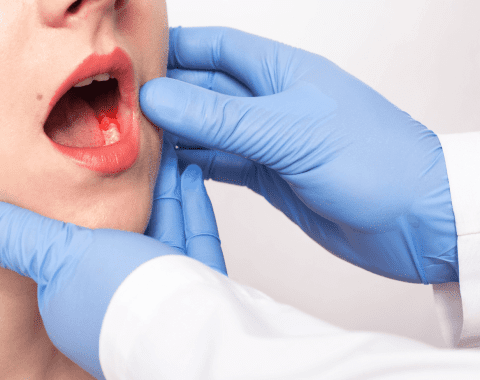Last updated 5.00pm 16-03-20
Note that items that are subject to change are highlighted in yellow, and should be confirmed on the Department of Health website at least daily.
Introduction
COVID-19 is becoming increasingly prevalent in Australia. This increases the likelihood of an exposure event occurring in the workplace.
Initially, most of these possible exposure events are likely to involve people who do not have COVID-19. As person-to-person transmission events begin to occur in the community, the chances of a true COVID-19 exposure event will increase.
All exposure events need to be treated as true exposure events until the diagnosis of the suspected case is confirmed.
Purpose
The purpose of this plan is to provide guidance to staff on how to respond to a possible COVID-19 exposure event in the workplace.
Definitions
COVID-19
Coronavirus (COVID-19) is a respiratory illness caused by a new virus. Symptoms range from a mild cough to pneumonia. Some people recover easily, others may get very sick very quickly. There is evidence that it spreads from person to person. Good hygiene can prevent infection.
Exposure event
An event where people in the workplace are exposed to a suspected or confirmed case of COVID-19.
Suspected COVID-19 case definition
- If the patient satisfies both clinical and epidemiological criteria, they are classified as a suspected case:
Clinical criteria
Fever
OR
Acute respiratory infection (for example, shortness of breath or cough) with or without fever
AND
Epidemiological criteria
International travel in the 14 days before the onset of illness
OR
Close or casual contact in the 14 days before illness onset with a confirmed case of COVID-19.
- If the patient has severe community-acquired pneumonia (critically ill) and no other cause is identified, with or without recent international travel, they are classified as a suspect case.
- If the patient has moderate or severe community-acquired pneumonia (hospitalised) and is a healthcare worker, with or without international travel, they are classified as a suspect case.
Confirmed COVID-19 case definition
A person who tests positive to a validated SARS-CoV-2 nucleic acid test or has the virus identified by electron microscopy or viral culture.
Casual contact
Casual contact is defined as any person having less than 15 minutes face-to-face contact or sharing a closed space with a confirmed case for less than two hours.
Because casual contact is likely to carry a much lower risk of transmission, contact needs to have occurred during the period from the onset of symptoms in the confirmed case until the confirmed case is no longer considered infectious, in order to be considered a casual contact.
Close contact
Greater than 15 minutes face-to-face or the sharing of a closed space for more than two hours with a confirmed case without recommended personal protective equipment (PPE), which is droplet and contact precautions for the definition of contact.
Healthcare workers (HCWs) and other contacts who have taken recommended infection control precautions, including the use of recommended PPE (droplet and contact precautions for the purposes of this contact definition), while caring for a suspected or confirmed case of COVID-19 are not considered to be close contacts. However, these people should be advised to self-monitor and if they develop symptoms consistent with COVID-19 infection they should isolate themselves and notify the Department of Health and Human Services on 1300 651 160 so they can be tested and managed as a suspected COVID-19 case.
Self-isolation
If you have been advised that you must self-isolate, you should remain at home or in your hotel (as applicable) and not go to public places including work, school, childcare, university or public gatherings. Only people who usually live with you should be in the home. Do not see visitors. If you are in a hotel, avoid contact with other guests or staff. If you are well, there is no need to wear surgical masks at home. Ask others who are not in isolation to get food and necessities for you. If you must leave home, such as to seek medical care, wear a surgical mask. If you don’t have a mask, take care to not cough or sneeze on others.
Possible exposure event in the dental practice
- As soon as a possible exposure event is known, all future patient appointments for that day should be cancelled until appropriate advice has been received.
- Staff and patients should remain where they are until further information is received. No one should leave except in the case of an emergency requiring evacuation.
- If the person with suspected COVID-19 is still at the workplace, they should be isolated in a room with the door shut and provided with a surgical mask with at least Level 2 barrier protection. Communication with them should occur only by phone or email. The air conditioning shall be temporarily switched off in that room as a precautionary measure, until the unwell person has departed, and the room has been cleaned. Refer to the Clinic cleaning section (below), and the COVID-19 Cleaning Protocol.
- Contact your state and territory health department. Contact details are available at https://www.health.gov.au/about-us/contact-us/local-state-and-territory-health-departments.Communicate to all staff the details of the exposure event and further instructions on what they are being asked to do.
- All communications about the exposure event are considered confidential and not to be communicated to members or the public.
- If there is a confirmed exposure event at the practice, notify Workcover and relevant insurers.
Isolation requirements
-
Depending on advice from the COVID-19 hotline and the Vic DHHS:
- At 15-03-20, the Australian Government advice requires 14 days self-isolation for close contacts of confirmed cases, and all travelers that have returned from overseas. Refer to the Australian Government Department of Health website for current information:
- https://www.health.gov.au/news/health-alerts/novel-coronavirus-2019-ncov-health-alert/how-to-protect-yourself-and-others-from-coronavirus-covid-19/isolation-for-coronavirus-covid-19
- Healthcare workers, who have been overseas in the past 14 days and are unwell with a compatible illness should not attend work and seek appropriate medical care.
- All unwell healthcare workers with compatible symptoms should consider being tested for COVID-19, irrespective of travel history.
- Employers wishing to apply additional exclusion criteria to employees should contact the ADA HR Advisory Service for advice hrhotline@ada.org.au or 1300 232 462
-
Requirements for staff:
-
Confirmed COVID-19 case exposure:
- Seek advice from Australian Government Department of Health Coronavirus health information line on 1800 020 080 Follow Australian Government and/or State or Territory Department of Healthself-isolation advice.
- Seek medical advice if you begin to feel unwell.
- Notify work if you develop possible COVID-19 symptoms
-
Suspected COVID-19 case exposure:
- Notify work at earliest convenience on 04 0990 7525 and melbournecbddentist@gmail.com
- If possible, minimise attendance at the practice of staff exposed to the suspected COVID-19 case until the outcome of the COVID-19 test for the suspected case is known.
- Anyone, who becomes unwell with possible COVID-19 symptoms, is to self-isolate and seek medical advice.
- Notify work if you develop possible COVID-19 symptoms
-
Leave arrangements
- Anyone who is unwell, is caring for a dependent who is unwell, or is issued a medical certificate by their GP will be eligible for paid personal leave, in accordance with the employer’s leave policy. Employees, who are required to self-isolate, but remain well are encouraged to work from home if possible.
- Review HR advice at https://www.ada.org.au/covid19
- Contact the HR Advisory Team at hrhotline@ada.org.au or on 1300 232 462 for further advice.
- Otherwise, staff who choose or are asked to self-isolate (without a medical certificate) can take other types of paid leave, or work from home if possible. Please discuss this with your employer for further information.
Clinic cleaning
- Following a possible exposure event, the clinic, reception and waiting areas must be thoroughly cleaned with disinfectant as a precautionary measure
- Particular attention should be paid to cleaning surfaces, computers, bathrooms, and door handles and any other surface that is regularly touched (e.g. dishwasher buttons, taps, lift buttons).
- Cleaners must wear appropriate PPE, e.g. a surgical mask, eye protection, apron and gloves.
- Refer to the COVID-19 Cleaning Protocol for advice on suitable cleaning agents, PPE, procedures, and correct disposal of PPE and other items after cleaning is completed.
Contact tracing
- Establish movements of the person with suspected/confirmed COVID-19 within the practice. Establish dates and times of possible exposure.
- Determine who may have come in contact with this person.
- Seek advice from the Australian Government Department of Health Coronavirus health information line on 1800 020 080 on whether people, who may have been exposed need to be contacted, and who is responsible for this.
Impact on business continuity
The practice will be guided by the appropriate advice from Australian Government and/or State or Territory Department of Health as to whether and when patient treatment can recommence.
Communication
- All communications about the exposure event are considered confidential and not to be communicated to members or the public or the media (including posting on social media)
- Advice from the Australian Government and/or State or Territory Department of Health will be considered when informing members and visitors who have visited the practice during the possible exposure period
- Do not use social media to contact patients to reschedule appointments. Consider using Messenger, email, phone calls, or an SMS service, such as Value SMS, Vision 6, or SMS Broadcast. Practice owners/managers are responsible for determining the most appropriate communication method and provider for this purpose.
- Media enquiries should be directed to the practice owner in the first instance. Practices are advised to contact their ADA Branch for assistance in dealing with the media.
Further information
Government COVID-19 advice
As the situation changes very rapidly, staff are advised to check the Department of Health website for updates on at least a daily basis if seeking COVID-19 advice: https://www.health.gov.au/health-topics/novel-coronavirus-2019-ncov
Telephone enquiries: Coronavirus Health Information Line (National): 1800 020 080
Australian Dental Association
ADA has information for members at https://www.ada.org.au/Covid19
Members can also contact their local Australian Dental Association Branch.




